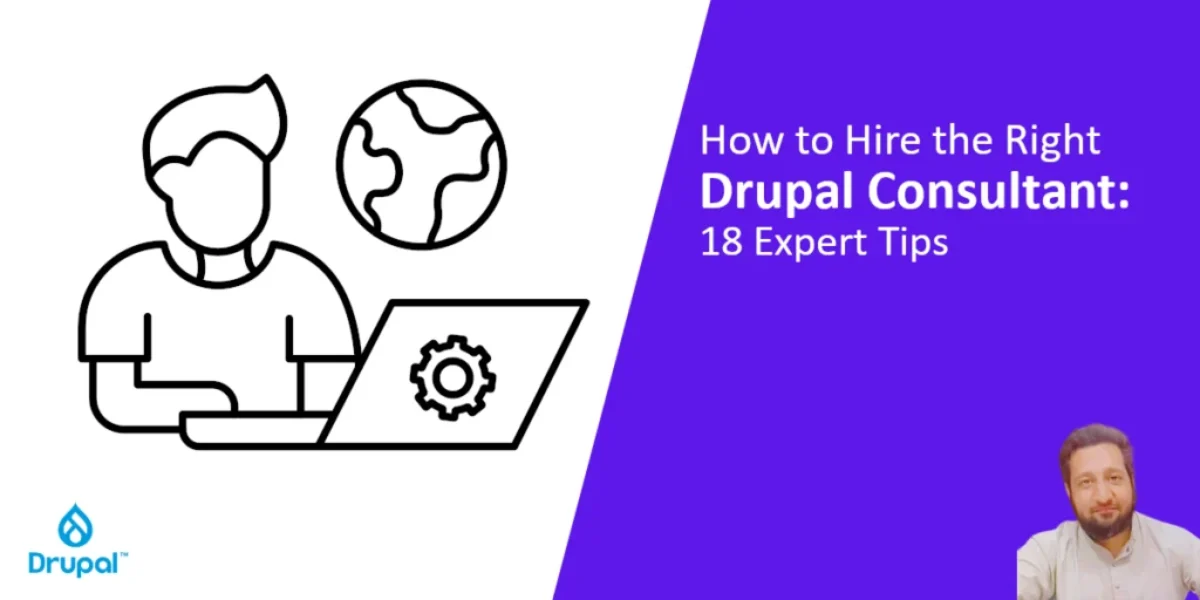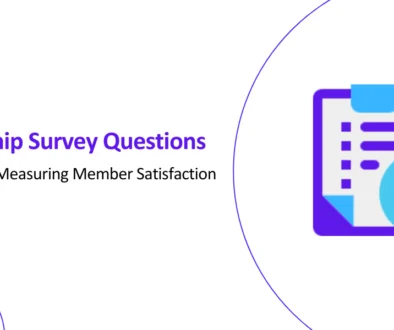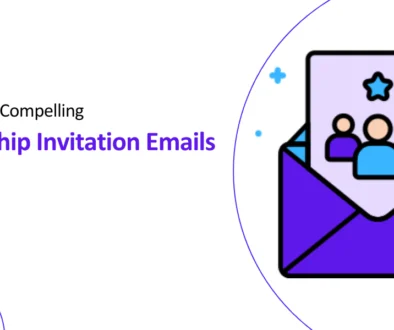How to Hire the Right Drupal Consultant: 18 Expert Tips
Drupal powers some of the world’s most dynamic websites, and finding the right consultant to elevate your online presence can feel overwhelming. Fear not, digital pioneers! This guide unveils 19 expert tips to ensure your Drupal hiring journey is smooth, successful, and tailored to your unique business needs.
Must-have Soft Skills for a Drupal Consultant
1. Understanding of your business vision
Don’t just focus on a consultant’s technical skills! To truly thrive with Drupal, find experts who grasp your business vision and goals. They should speak your language – the language of your brand, your marketing, sales, CS and product goals, not just programming jargon. These consultants will translate your vision into a Drupal strategy that drives business success while staying true to your brand identity.
Choose a consultant who understands your competitive landscape, not just the platform, and together you’ll create a digital experience that shines. Recognize that understanding your business processes, workflows and business model is crucial for building the right solution. Encourage proper scoping and discovery conversations because understanding leads to better results.
2. Collaboration & Teamwork
Value consultants who emphasize collaboration and teamwork. Look for experience working with diverse teams, embracing peer review, and sharing knowledge through open-source contributions. This signifies their commitment to continuous improvement and growth.
3. Communication skills
Prioritize communication skills alongside technical expertise when choosing a Drupal consultant. Responsiveness, proactive engagement, and a keen understanding of your concerns are crucial for building trust and ensuring a smooth, collaborative Drupal project.
4. Look for Transparency

When choosing a website consultant, focus on those who play with open cards. Look for clear timelines, regular progress reports, and detailed cost breakdowns. They should value your opinion and invite your feedback throughout the process. Building your website should be a cooperative effort, and open communication is key to achieving a website that truly embodies your vision. Remember, the best results come from working hand-in-hand with your consultant, not leaving you in the dark.
5. Navigate the buzzwords
Don’t get caught up in flashy tech buzzwords when vetting consultants. Focus on whether they understand your unique challenges and can envision a creative, strategic solution tailored to your needs. Choose consultants who clearly explain the rationale behind their recommendations, not just the actions they prescribe. Prioritize those who can think beyond the technical and offer innovative solutions that drive real value for your business, not just implement trendy bells and whistles. Remember, you’re looking for a partner who will think creatively and strategically to help your business thrive, not just someone who throws around tech jargon hoping to impress.
6. Seek verification
Dig beyond the glossy website or profile and charming pitch. Get the inside scoop from past clients and online reviews. See if their promises translate to real-world satisfaction. Contact former clients directly and ask them about project delivery, communication, and any hidden downsides. Don’t hold back on the tough questions – remember, you’re investing in expertise, not smoke and mirrors. Online reviews also offer valuable insights, revealing common praises and frustrations. By combining both sources, you’ll build a well-rounded picture of the consultant’s strengths and weaknesses, allowing you to confidently make an informed decision. Remember, trust is crucial, but verification is key!
7. Get a Taste of the Pie
Diving headfirst into a big project with a new consultant can be nerve-wracking. Instead, why not dip your toes in first with a smaller pilot project or a focused consultation session? This “mini-interview” serves both of you. You get to see their skills in action, assess their responsiveness, and build trust before taking a deeper dive. They get to understand your specific needs and tailor their approach. Think of it as a low-risk test drive before hitting the accelerator on a larger collaboration. So, before signing on the dotted line, consider taking a smaller step first. The rewards of a stronger, more confident partnership could be just around the corner.
Must-have Technical Skills for a Drupal Consultant
8. Go beyond mock scenarios

While mock scenarios are helpful, they might not reveal core Drupal understanding. Consider more specific technical tasks:
- Frontend Challenge: Ask them to create a custom block with a template and CSS styles, demonstrating familiarity with theme building and Twig templates.
- Backend Challenge: Provide a simple but Drupal-specific task like your “redirect to Google” scenario. This reveals knowledge of forms, event subscribers, hooks, or even contrib modules.
9. Seek experience in Drupal migration
Choosing a consultant for your Drupal migration can be daunting. Their past experience is key! Before hiring, dive deep into their portfolio. Look for past migrations from your specific Drupal version and projects facing similar challenges, like complex eCommerce integration. You want a consultant who’s already walked the path you’re taking. This ensures not only their expertise but also their understanding of your specific needs and roadblocks. Don’t hesitate to ask for proof of past successes – their experience can make your migration smoother and more successful.
10. Prioritize seasoned Drupal consultants with a commitment to open-source values
Instead of generic web devs, actively seek experienced Drupal consultants. Look for certifications (e.g., Acquia Certified Developer). Prioritize Drupal consultants who actively participate in the Drupal community. Look for contributions to Drupal.org modules, patch submissions, and code reviews. A virtue of contributing back to the community often reflects a commitment to quality, best practices, and a broader understanding of the Drupal ecosystem.
11. Code Review and Screen Share
After reviewing code samples, conduct a 1-hour screen-sharing interview. Observe their approach to the technical challenge, their use of Drupal resources, and the quality of their code (scalability, cleanliness).
12. Focus on Problem-Solving Skills
Don’t expect the perfect solution in the interview. Evaluate their thought process, ability to research, and willingness to explore different approaches (hooks, modules, etc.).
13. Dig Deeper than Portfolio Links
Beyond showcasing past projects, ask the consultant to explain their specific role and contributions within each project. This unveils their depth of involvement and technical expertise.
14. Look for a Drupal consultant who embraces a long-term perspective
Forget Drupal consultants offering temporary patches that leave your website fragile and dependent. Embrace a future-proof approach with consultants who build sustainable solutions. Imagine reusable code and components – building blocks that not only lessen your reliance on consultants but elevate your website’s performance and adaptability. Choose beyond the “small fix” trap. Opt for long-term partnerships with consultants who invest in your website’s journey, offering ongoing support and maintenance as it evolves.
15. Look for a Drupal consultant with “Coding Integrity”
Be wary of developers who prioritize expediency over quality. Seek consultants who strive for polished, re-usable code that reflects pride in their work and a willingness to stand up to external scrutiny.
16. Look for Training Initiatives
Prioritize consultants who actively seek to upskill and improve. Look for those involved in workshops, conferences, or mentoring programs, demonstrating their dedication to staying ahead of the curve in the Drupal landscape.
Remember, the perfect Drupal consultant might not tick all the boxes, but their core Drupal expertise, problem-solving skills, and collaborative approach will be key to a successful partnership and elevate your Drupal website to new heights.
17. Experience in Decoupled/Headless Drupal
Imagine building a sleek, modern house, but being stuck with pre-made doors and windows. That’s what traditional Drupal can feel like sometimes. Look for a consultant who possess:
- Strong understanding of RESTful APIs: This is the backbone of headless Drupal, as it allows seamless data exchange between the content backend and any front-end framework. Ask the consultant to explain their experience building and consuming APIs in Drupal.
- Familiarity with front-end frameworks: Headless projects often use frameworks like React, Vue.js, or Angular. While the consultant doesn’t need to be an expert in these, they should understand how they integrate with Drupal and be comfortable collaborating with front-end developers.
- Knowledge of headless Drupal modules: Popular modules like JSON API, GraphQL, and Headless Drupal modules indicate familiarity with headless practices. Ask them about their experience using specific modules in their projects.
18. Understanding of “Marketing”
A consultant who understands your marketing objectives like customer acquisition, engagement, and conversion, will map them onto Drupal features and modules, ensuring your Drupal website supports strategic business goals.
- Drupal Personalization: Ability to configure rules, create content variants, and implement personalization strategies.
- Integration knowledge: Connecting Drupal with CRM, marketing automation, account-based marketing platforms, and analytics platforms for a unified data.
- Conversion rate optimization: Optimize user experience for conversions and knows how users interact with websites, designs personalized experiences, and implements features that drive desired actions.
- Familiarity with related modules: Paragraphs, Views, Rules, Custom Entities, Smart Content, Acquia Personalization (formerly Acquia Lift) etc.
Drupal Consultant vs Drupal Developer: What Are the Key Differences?
Drupal consultants and developers are both experts in Drupal, but they have different roles. Drupal consultants focus on the “why” of a project, such as what the business goals are and how Drupal can be used to achieve them. They also have a high-level understanding of Drupal architecture and can help to plan and coordinate complex projects. Drupal developers, on the other hand, focus on the “how” of a project, such as building the website and making sure it functions correctly. They are experts in Drupal code and can write clean, efficient, and robust code.
| Feature | Drupal Developers | Drupal Consultants |
|---|---|---|
| Focus | How | Why |
| Expertise | Drupal code, site building, QA, etc. | Drupal architecture, business strategy, etc. |
| Typical tasks | Building websites, fixing bugs, etc. | Planning projects, advising clients, etc. |
Here are some additional things to consider when choosing between a Drupal consultant and a Drupal developer:
- The size and complexity of your project: If you have a small project, you may only need a Drupal developer. However, if you have a large or complex project, you will likely need both a developer and a consultant.
- Your budget: Drupal consultants typically charge more than Drupal developers. However, they can save you money in the long run by helping you to avoid costly mistakes.
- Your experience with Drupal: If you are new to Drupal, you may want to hire a consultant to help you get started.
Consider Manzar Mashhood, CEO and Founder of Manmash Consulting, as your ideal Drupal Consultant
Manzar Mashhood brings more than technical expertise when it comes to Drupal website development – with a rich blend of soft skills and extensive consulting experience for various SaaS and E-commerce businesses. For your Drupal needs, connect on LinkedIn or reach out via WhatsApp at +923331200550.




